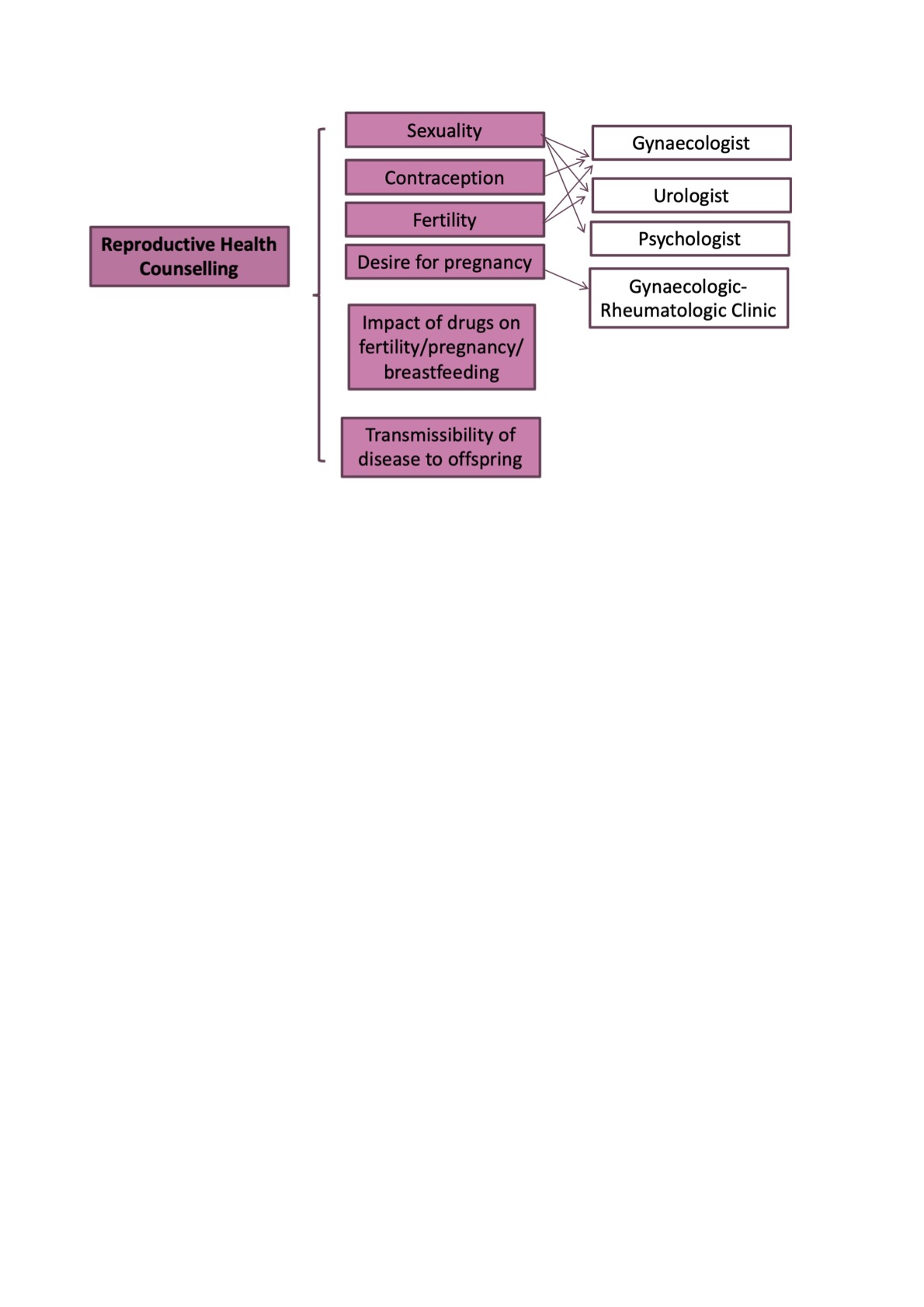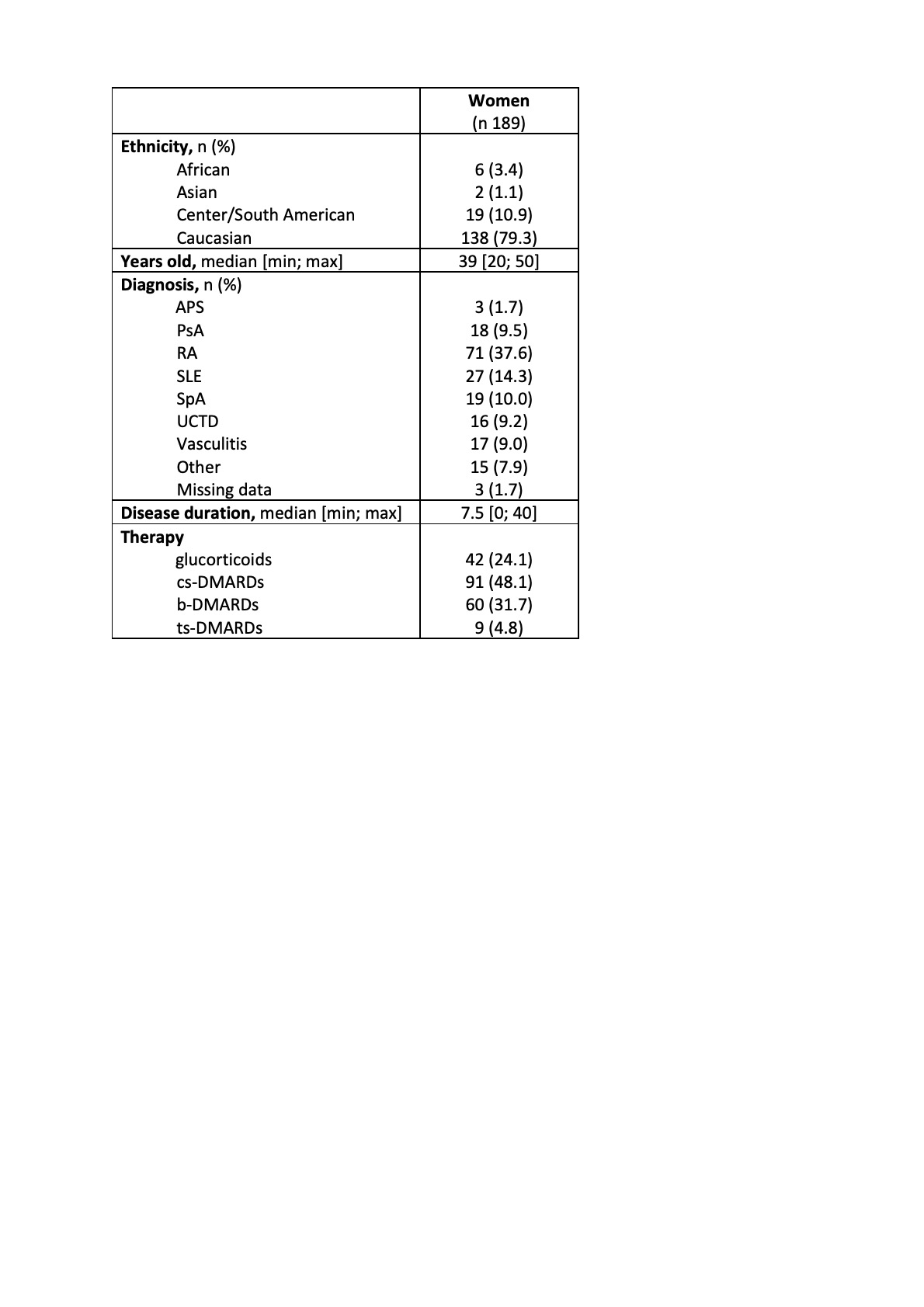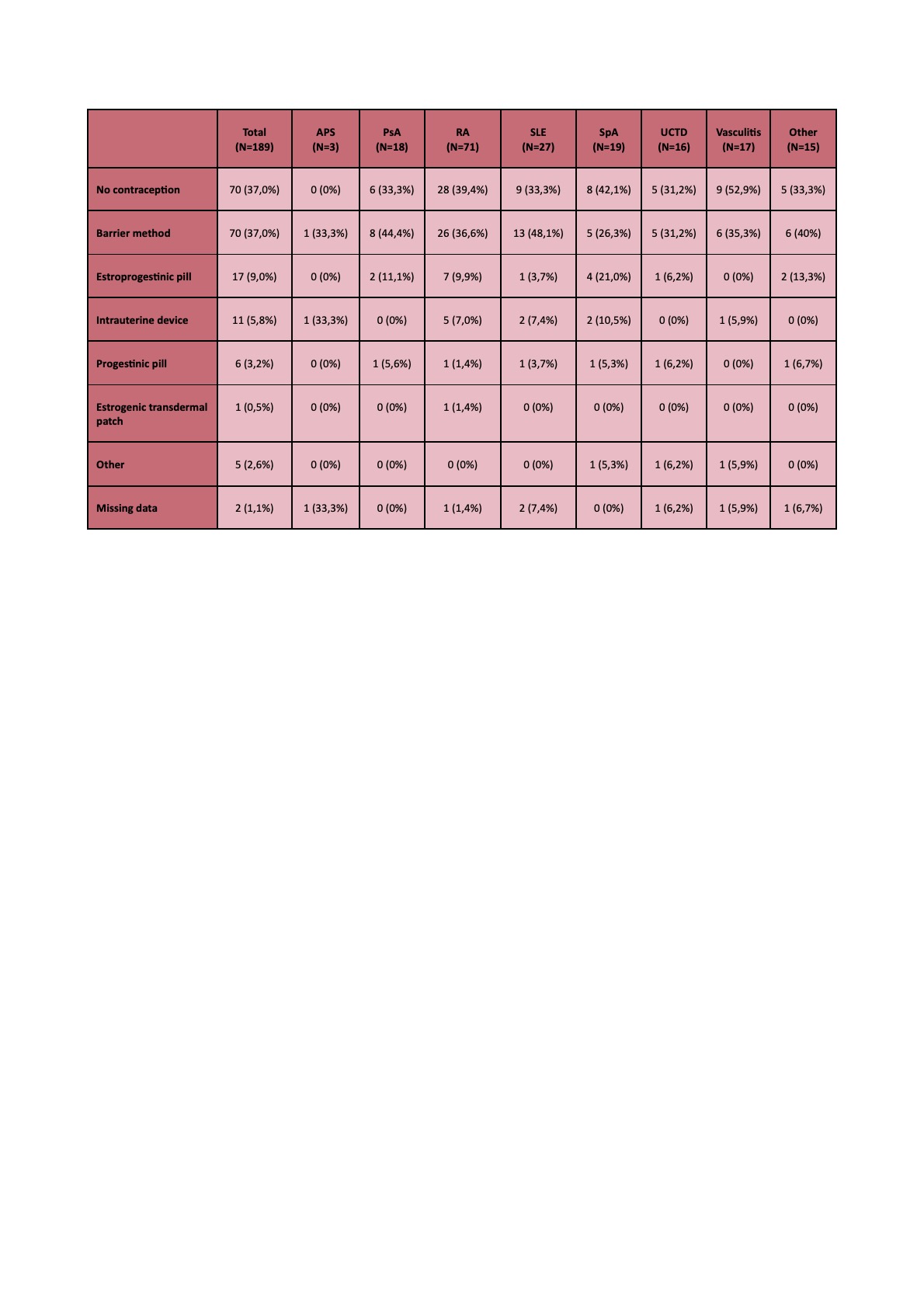Session Information
Session Type: Poster Session A
Session Time: 10:30AM-12:30PM
Background/Purpose: Contraception is a relevant issue for women of childbearing age with immune-mediated rheumatic diseases, as an unplanned pregnancy during active disease or treatment with teratogenic drugs represents a serious threat for the health of these women and their offspring. The aim of this study was to investigate the use of contraception in women of fertile age with immune-mediated rheumatic diseases and to improve their level of awareness and information about reproductive health and family planning.
Methods: In this cross-sectional observational study, a survey about reproductive health (sexuality, contraception, fertility, pregnancy, lactation, transmissibility) in relation to their disease has been administered to consecutive patients with immune-mediated rheumatic diseases, aged 18 to 50 years, attending a Reproductive Health Counselling Clinic (Figure 1).
Questions related to contraception in women and their need to receive more information as part of a counselling conducted by dedicated rheumatologists were analyzed.
Results: From January 2023 to February 2024, 189 women completed the survey (Table 1).
92/189 women (48,7%) reported using at least one contraceptive method, data comparable to that of the general Italian population (51,8%, Istat source).
11/189 women (5,8%) reported using a barrier contraceptive method in addition to another contraceptive method. The use of different contraceptive methods is described in Table 2.
Among the 189 women, 40 (21,2%) were being treated with drugs incompatible with pregnancy (32 methotrexate, 8 mycophenolate mofetil): 12/40 (30%) reported regularly taking contraceptive therapy (4 estroprogestinic pill, 4 intrauterine device, 2 progestinic pill, 2 other); 14/40 (35%) reported not taking any contraceptive therapy but using barrier contraceptive methods regularly, while 14/40 (35%) reported not adopting any contraceptive method. All patients reported having partner.
Of 189 women, only 31 (16,4%) had already addressed the contraception issue during a medical visit: 18 (9,5%) with a rheumatologist, 9 with a gynaecologist, 2 with a general practitioner, 2 with another specialist.
68/189 women (36%) requested the reproductive health counselling. Among the 68 women who requested counselling, only 16 (23,5%) expressed the need to discuss the topic of contraception.
Conclusion: The use of safe and effective contraception is an essential topic to consider in the context of sexual and reproductive health of women of fertile age with immune-mediated rheumatic diseases, particularly if teratogenic drugs are part of the ongoing treatment. Nonetheless, our experience shows that contraception issue is little covered during medical examination, pointing out an unmet need within the clinicians’ approach to these patients.
Legend: APS, antiphospholipid syndrome; PsA, psoriatic arthritis; RA, rheumatoid arthritis; SLE, systemic lupus erythematosus; SpA, spondyloarthropathies; UCTD, undifferentiated connective tissue disease; b-DMARDs, biological disease-modifying antirheumatic drugs; cs-DMARDs, conventional synthetic disease-modifying antirheumatic drugs; ts-DMARDs, targeted synthetic disease-modifying antirheumatic drugs.
Other: antisynthetase syndrome; juvenile idiopathic arthritis; mixed connective tissue disease; systemic sclerosis; Sjogren syndrome; Still disease.
Legend: APS, antiphospholipid syndrome; PsA, psoriatic arthritis; RA, rheumatoid arthritis; SLE, systemic lupus erythematous; SpA, spondyloarthritis; UCTD, undifferentiated connective tissue disease.
Other: antisynthetase syndrome; juvenile idiopathic arthritis; mixed connective tissue disease; systemic sclerosis; Sjogren syndrome; Still disease.
To cite this abstract in AMA style:
Gagliardi C, Gerardi M, Giacobbe E, Benedetti S, Di Raimondo G, Ascione A, Barichello M, Ughi N, Adinolfi A, Belloli L, Casu C, Di Cicco M, Filippini D, Longhi M, Palermo B, Schettino M, Segatto G, Verduci E, Epis O. Use of Contraception in Women of Childbearing Age with Immune-Mediated Rheumatic Diseases: Experience from an Italian Centre [abstract]. Arthritis Rheumatol. 2024; 76 (suppl 9). https://acrabstracts.org/abstract/use-of-contraception-in-women-of-childbearing-age-with-immune-mediated-rheumatic-diseases-experience-from-an-italian-centre/. Accessed .« Back to ACR Convergence 2024
ACR Meeting Abstracts - https://acrabstracts.org/abstract/use-of-contraception-in-women-of-childbearing-age-with-immune-mediated-rheumatic-diseases-experience-from-an-italian-centre/



